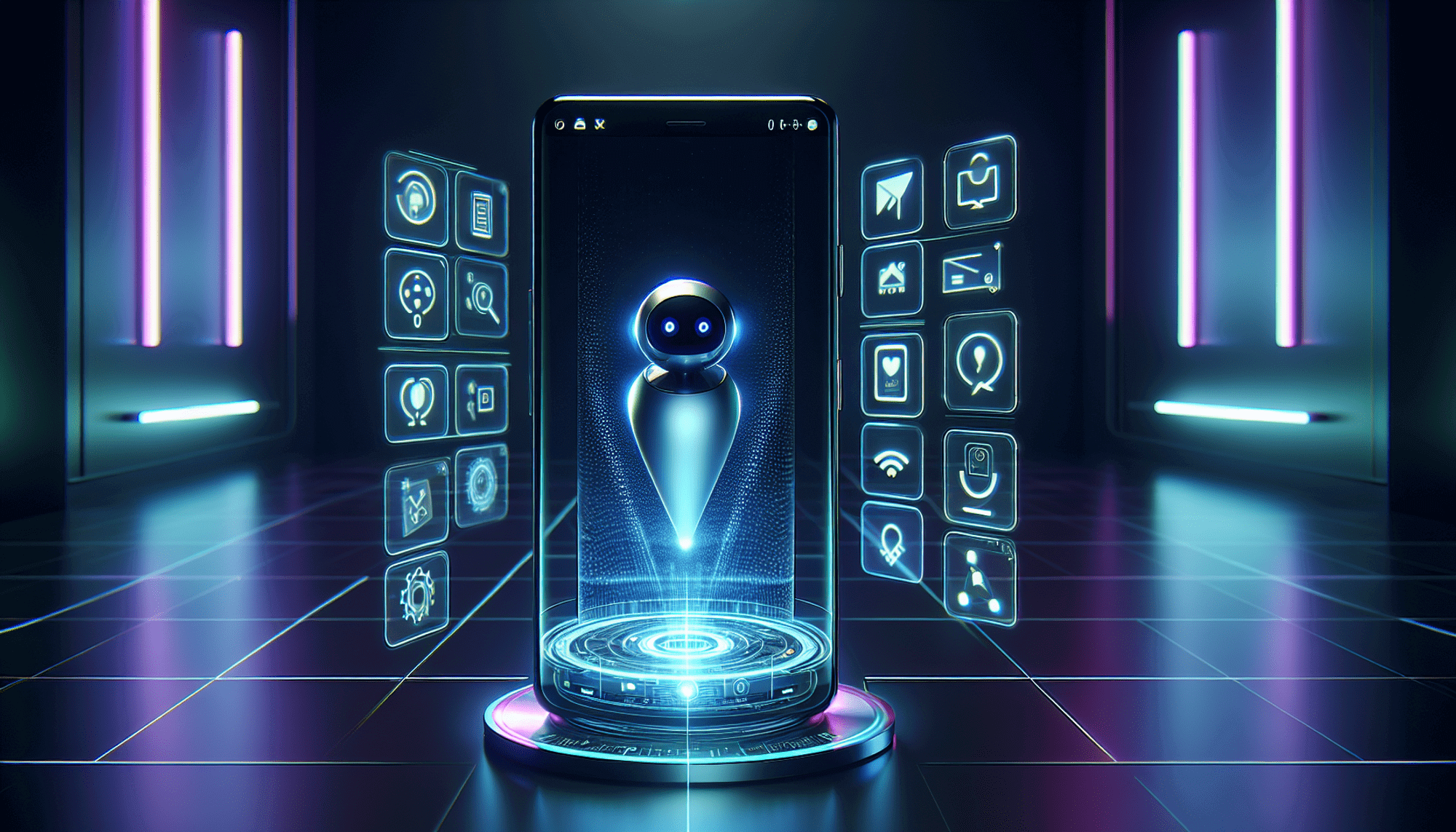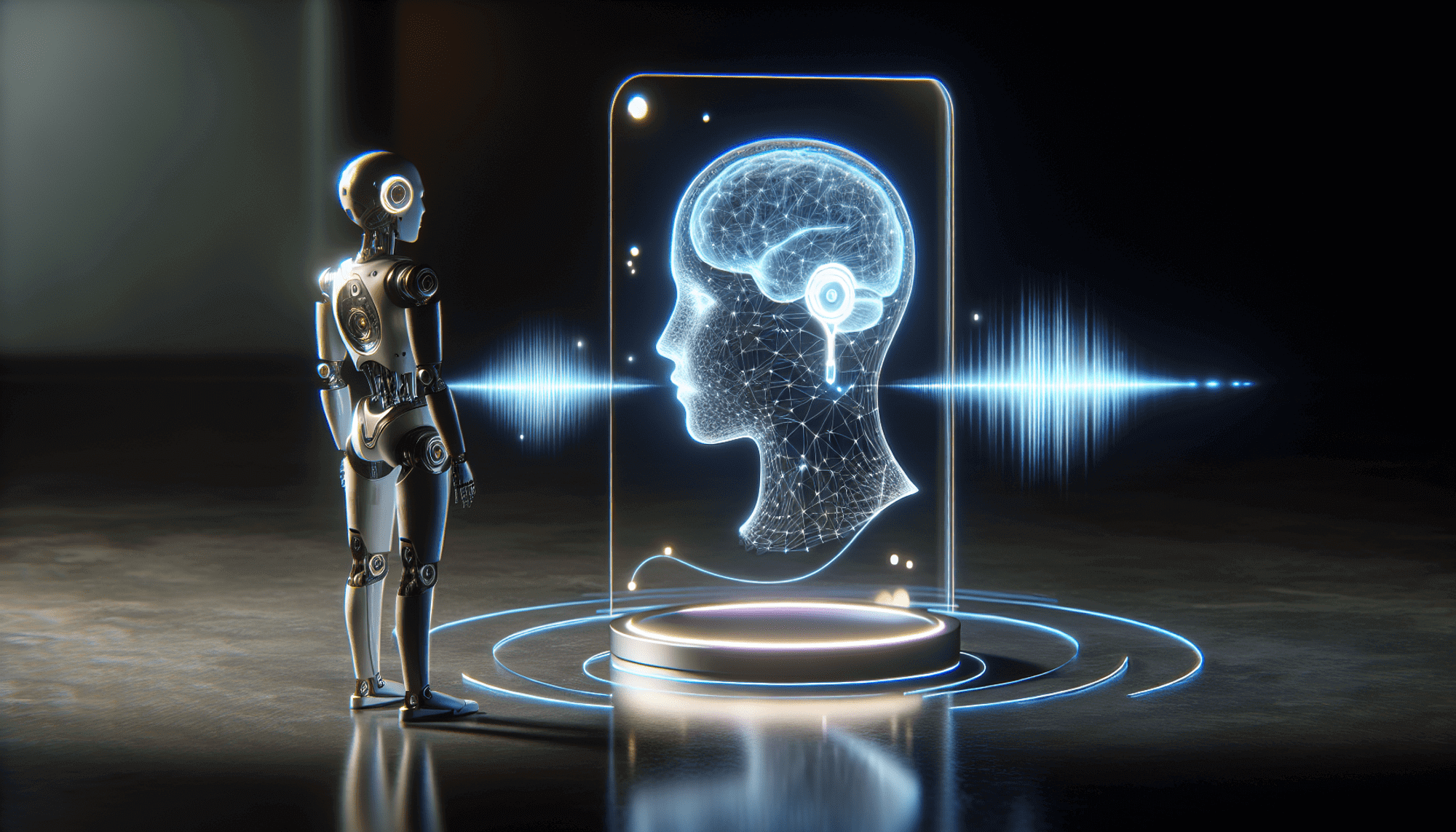






Table of Content:
The Rise of Artificial Intelligence in Phones

The integration of artificial intelligence (AI) in smartphones has revolutionized the way we interact with our devices. With AI becoming increasingly advanced, smartphones are now capable of performing tasks previously unimaginable.
This article dives into the world of AI in phones, exploring its concept, evolution, impact on user experience, future prospects, and the challenges it faces.
Understanding Artificial Intelligence
Before delving into the integration of AI in phones, it's important to grasp the concept of artificial intelligence itself. AI refers to the development of computer systems capable of performing tasks that typically require human intelligence, such as learning, problem-solving, and decision-making. By analyzing vast amounts of data, AI algorithms can make intelligent predictions and autonomously adapt to user preferences.
The Concept of Artificial Intelligence
Artificial Intelligence is based on the concept of machine learning, which allows computers to learn and improve from experience without being explicitly programmed. Through algorithms, AI technology can recognize patterns, interpret complex data, and make informed predictions or decisions. This technological advancement has laid the foundation for the integration of AI in smartphones.
Machine learning algorithms are designed to mimic the human brain's ability to process information and learn from it. These algorithms are trained using large datasets, which enable them to identify patterns and make accurate predictions. The more data they are exposed to, the better they become at understanding and interpreting complex information.
One of the key aspects of AI is its ability to adapt and improve over time. As users interact with AI-powered smartphones, the algorithms analyze their preferences and behaviors, continuously learning and adjusting to provide a personalized experience. This adaptive nature of AI allows smartphones to understand user needs and offer tailored recommendations, making them an indispensable tool in our daily lives.
The Evolution of AI Technology
The evolution of AI has been remarkable, with significant advancements made in recent years. Initially, AI was confined to large computer systems, but with the advent of smartphones, AI technology has become readily accessible to everyday users. Today, smartphones are equipped with powerful processors and advanced neural networks, enabling them to process vast amounts of data swiftly and efficiently.
Smartphones have become an integral part of our lives, serving as our personal assistants, navigators, and entertainment hubs. The integration of AI technology has further enhanced their capabilities, allowing them to understand natural language, recognize images, and even predict user behavior. This level of intelligence has transformed smartphones into smart companions that can assist us in various aspects of our lives.
With AI-powered smartphones, users can now enjoy features like voice assistants, which can understand and respond to natural language commands. These voice assistants can perform tasks such as setting reminders, sending messages, and even searching the internet, all through voice commands. The integration of AI has made interacting with smartphones more intuitive and convenient.
Furthermore, AI algorithms can analyze user data, such as browsing history and app usage, to provide personalized recommendations. Whether it's suggesting new music based on listening habits or recommending restaurants based on past preferences, AI-powered smartphones can enhance the user experience by tailoring content and services to individual needs.
As AI technology continues to advance, we can expect smartphones to become even smarter and more capable. From improved voice recognition to enhanced image processing, AI will play a crucial role in shaping the future of smartphones. The integration of AI in phones is not just a trend but a transformative shift that will revolutionize how we interact with technology.
The Integration of AI in Smartphones
With the rapid advancement of technology, AI has found its way into our pockets through smartphones. This integration has immensely enhanced the capabilities of these devices, putting the power of AI at our fingertips.
AI in smartphones has revolutionized the way we interact with our devices. Gone are the days when smartphones were limited to basic functions like calling and texting. Now, thanks to AI, our smartphones have become smart companions that understand our needs and adapt to our preferences.
The Role of AI in Enhancing Smartphone Capabilities
AI plays a crucial role in enhancing smartphone capabilities. Through machine learning algorithms, smartphones can analyze user behavior, preferences, and habits to offer personalized experiences. This means that your smartphone can learn your daily routine and anticipate your needs, whether it's suggesting the best route to work based on traffic patterns or recommending your favorite playlist at the perfect moment.
But AI in smartphones goes beyond personalization. It also enables real-time language translation, voice recognition, and image processing. Imagine traveling to a foreign country and being able to communicate effortlessly with locals, thanks to your smartphone's AI-powered translation feature. Or capturing stunning photos with your smartphone's AI-enhanced camera, which can automatically adjust settings to capture the perfect shot.
Different AI Features in Modern Smartphones
Modern smartphones come equipped with a variety of AI features. These include virtual assistants, such as Siri and Google Assistant, that can understand and respond to voice commands, perform tasks, and provide useful information. These virtual assistants have become our personal helpers, capable of setting reminders, answering questions, and even telling jokes.
AI is also used to optimize battery usage, improve camera performance, and enhance security features like facial recognition or fingerprint scanning. With AI, your smartphone can intelligently manage power consumption, ensuring that you have enough battery life to get through the day. It can also analyze lighting conditions and adjust camera settings accordingly, resulting in better photos even in challenging environments.
Furthermore, AI-powered security features provide an extra layer of protection for your smartphone. Facial recognition and fingerprint scanning technologies make it easier and more secure to unlock your device, keeping your personal information safe.
In conclusion, the integration of AI in smartphones has transformed these devices into powerful tools that can understand and adapt to our needs. From personalized experiences to real-time language translation and enhanced security features, AI has revolutionized the capabilities of smartphones, making them indispensable in our daily lives.
The Impact of AI on User Experience
Artificial Intelligence (AI) has revolutionized the user experience of smartphones, transforming them into highly intuitive and personalized devices.
With the advent of AI, smartphones have become more than just communication tools. They have evolved into intelligent companions that understand and adapt to the needs of their users. This has significantly enhanced the overall user experience, making smartphones an indispensable part of our daily lives.
How AI Improves User Interaction
AI has greatly improved user interaction with smartphones by enabling advanced technologies such as natural language processing and voice recognition. These breakthroughs have paved the way for virtual assistants, powered by AI, to understand and respond to spoken commands.
Imagine being able to perform tasks on your smartphone without even touching it. Thanks to AI, virtual assistants like Siri, Google Assistant, and Alexa have made this a reality. Users can now simply speak to their smartphones and have them execute commands, whether it's sending a text message, making a phone call, or playing their favorite music.
This hands-free interaction not only enhances convenience but also opens up new possibilities for individuals with disabilities. People who have difficulty using their hands or have limited mobility can now access the full functionality of smartphones, empowering them to stay connected and engaged with the digital world.
AI and Personalized Smartphone Experience
One of the most significant advantages of AI integration in smartphones is the ability to provide personalized experiences. AI algorithms analyze vast amounts of user data, including browsing history, app usage patterns, and preferences, to tailor the smartphone experience to each individual user.
These algorithms can predict user needs, suggest relevant content, and even anticipate actions before they are explicitly requested. For example, if a user frequently uses a particular app at a specific time of day, the smartphone can proactively display a shortcut to that app during that time, making it easily accessible.
Furthermore, AI-powered smartphones can learn from user behavior and adapt their recommendations over time. As users engage with their devices, AI algorithms continuously refine their understanding of individual preferences, ensuring that the smartphone experience becomes increasingly personalized and tailored to each user's unique needs.
This level of personalization not only enhances user satisfaction but also fosters a deeper connection between users and their smartphones. By delivering relevant and timely content, AI-powered smartphones become indispensable tools that seamlessly integrate into users' daily lives.
In conclusion, the impact of AI on the user experience of smartphones is profound. From enabling hands-free interaction to providing personalized experiences, AI has transformed smartphones into intelligent companions that understand and adapt to the needs of their users. As AI continues to advance, we can expect even more exciting developments in the future, further enhancing the user experience and making smartphones an essential part of our lives.
Future Prospects of AI in Smartphones
The future of AI in smartphones holds immense potential for further innovation and development.
Emerging Trends in AI for Mobile Technology
AI in smartphones is expected to witness emerging trends, such as enhanced natural language processing, better contextual understanding, and improved predictive capabilities. Furthermore, AI integration with augmented reality (AR) and virtual reality (VR) is poised to revolutionize the way we interact with smartphones and experience digital content.
The Potential of AI in Shaping the Future of Smartphones
As AI continues to advance, it has the potential to shape the future of smartphones in profound ways. From improved battery life and processing speeds to enhanced security and personalization, AI will continue to drive innovation and redefine the boundaries of smartphone technology.
Challenges and Controversies Surrounding AI in Phones
While the integration of AI in phones brings numerous benefits, it also poses challenges and controversies that need to be addressed.
Ethical Concerns in AI Integration
AI integration raises ethical concerns regarding data privacy, security, and bias. As smartphones collect vast amounts of personal data, it is crucial to ensure that user information is handled responsibly, transparently, and securely. Additionally, the potential biases present in AI algorithms need to be addressed to ensure fair and unbiased outcomes for all users.
The Debate on Privacy and Security in AI Phones
The integration of AI in phones has sparked debates surrounding user privacy and security. AI technology relies heavily on data, leading to concerns about the unauthorized use or misuse of personal information. Striking the right balance between leveraging user data for personalized experiences and safeguarding privacy rights remains a significant challenge for smartphone manufacturers and developers.
In conclusion, the integration of artificial intelligence in smartphones has ushered in a new era of possibilities. From enhancing smartphone capabilities and user experiences to shaping the future of smartphone technology, the rise of AI in phones has been transformative. However, it is vital to address the challenges and controversies surrounding AI integration to ensure ethical practices and safeguard user privacy and security.










